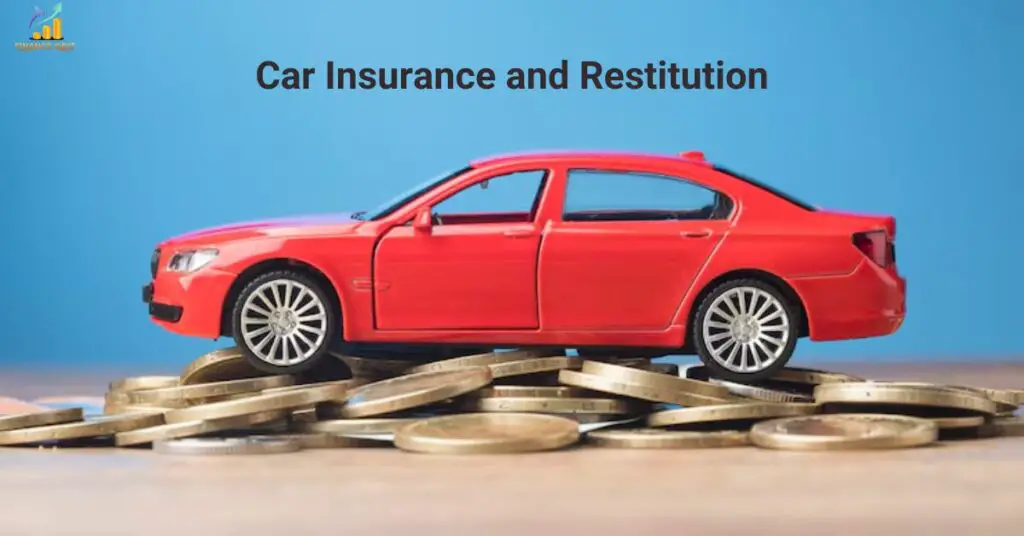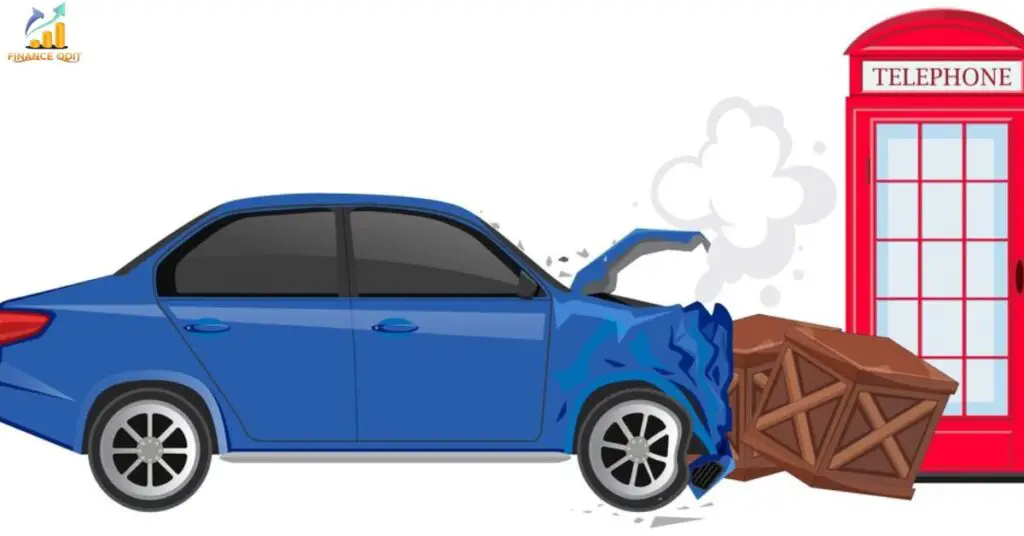Car insurance covers restitution in certain situations. If you cause an accident, restitution may be required. Your liability coverage can help pay for the other party’s damages.
Restitution covers things like medical bills, vehicle repairs, and lost wages. Coverage limits apply based on your policy. Speak to your insurer to understand what restitution expenses may be covered.
Car Insurance and Restitution

Car insurance can cover restitution for accident damages. This helps you get money back for repairs.
Check your policy to see if restitution is included. Having this coverage can save you from extra expenses.
What Is The Definition Of Restitution?
Restitution means repaying someone for losses caused by your actions. If you damage someone’s property or injure them, restitution covers their costs. It aims to make them whole again financially.
Restitution may include medical bills, lost income, and property damage costs. Courts often order restitution in injury cases. Insurance can cover restitution payments up to policy limits.
Does Car Insurance Cover Restitution?
Car insurance covering restitution depends on several factors. The type of car insurance you have is crucial. Policy limits and exclusions also play a big role. Always review your policy details to understand your coverage.
Types of Car Insurance Coverage
There are different types of car insurance coverage. Each type helps cover certain situations and potential costs.
Liability Coverage: This coverage helps pay for damages and injuries you cause to others if you’re found legally liable in an accident. It can cover restitution payments up to your policy limits.
Collision Coverage: This covers repair costs for your own vehicle if you collide with another vehicle or object like a tree or fence. It does not cover restitution payments to others.
Comprehensive Coverage: This helps cover your vehicle if it’s damaged by something other than a collision, like vandalism, theft, flooding, or a fallen object. It does not pay restitution for damages you cause others.
Uninsured/Underinsured Motorist Coverage: If you’re hit by a driver with little or no insurance, this coverage can help pay for your damages and injuries. It does not cover restitution payments you owe others.
Policy Limits and Exclusions
Car insurance policies have coverage limits. These are maximum amounts your insurer will pay out. For liability coverage, limits apply to restitution costs. Always know your policy’s limits.
Policies also have exclusions that are not covered. Common exclusions include intentional acts, reckless driving, and criminal behavior. Insurers likely won’t cover restitution resulting from excluded scenarios.
Related Article: Does Car Insurance Cover Hail Damage? Find Out Now!
Some Points of Makes Car Insurance Cover Restitution
How to Get Out of Paying Restitution: There are few ways to avoid paying restitution if ordered. Car insurance can cover restitution costs up to policy limits. But insurance won’t pay if your actions are excluded.
You may be able to negotiate a lower restitution amount. Or seek alternative sentencing that doesn’t involve restitution payments. Consult a lawyer for options.

Restitution Car Accident: If you cause a car accident, restitution may be required. Your insurance can help cover damages and injury costs. To file a restitution claim, provide evidence like medical bills, repair estimates, and lost wage info.
Restitution for DUI Accident: If convicted of a DUI accident, you’ll likely owe restitution. This covers victims’ losses like medical treatment, property damage, lost income, and pain and suffering. Insurance may not cover restitution from a DUI accident since it involves unlawful behavior. You may have to pay out-of-pocket.
Exceptions and Limitations
There are some exceptions and limitations to car insurance covering restitution payments. Certain acts and situations may not be covered under your policy.
Intentional Acts: If you intentionally cause harm or damage to someone or their property, your insurance likely won’t cover restitution. Intentional acts are typically excluded from coverage.
Criminal Behavior: Restitution related to criminal behavior like DUI, reckless driving, or vehicular crimes may not be covered by insurance. Policies exclude illegal acts.
Specific Policy Exclusions: Every car insurance policy lists specific exclusions that are not covered. Common exclusions are racing, hauling hazardous materials, and using your car for ridesharing. Carefully review your exclusions.
Factors Affecting Coverage
Several factors can impact whether your car insurance covers restitution payments. It’s important to understand these factors and your policy details.
State Laws: The state you live in can influence restitution coverage. Some states require insurers to cover certain restitution costs. Know your state’s laws.
Policy Terms and Conditions: Carefully review the terms and conditions of your specific policy. Coverage details and exclusions are outlined here regarding restitution.
Nature of the Incident: The circumstances around the incident play a role. Restitution from an accident due to negligence may be covered versus intentional acts.
Steps to Take After an Incident
If you’re involved in an incident that may require restitution, there are some key steps to take. Follow this process to protect your rights and interests.
Contacting the Insurance Company: Notify your insurance provider promptly after an incident occurs. Provide details and follow their instructions.
Filing a Claim: You’ll likely need to formally file an insurance claim related to the incident and potential restitution costs.
Seeking Legal Advice: Consider consulting a lawyer, especially for serious incidents. They can advise you on restitution and your options.
Importance of Understanding Policy Details
Knowing the ins and outs of your car insurance policy is crucial. Policy details determine if restitution costs are covered or not. Thoroughly reviewing your policy can prevent surprises down the road.
Related Article: Does Car Insurance Cover Accidents On Private Property: A Quick Guide
Alternatives to Car Insurance Coverage
If your car insurance doesn’t cover restitution costs, you may need to explore other options. There are a couple alternatives to consider.
Uninsured Motorist Coverage: This coverage can help pay for your damages if the at-fault party can’t cover restitution costs. It kicks in when the other driver is uninsured or underinsured.
Legal Action: You may be able to pursue legal action against the at-fault party to recover restitution costs. Consulting a lawyer is recommended.
It’s best to fully understand your car insurance policy’s restitution coverage ahead of time. Being prepared can save you from difficult financial situations down the road.
Restitution vs Other Damages

High-risk drivers often have a tougher time getting restitution costs covered by insurance. Their driving records can significantly impact coverage.
DUI/DWI Convictions: A conviction for driving under the influence usually means insurance won’t cover any restitution stemming from that incident. It’s considered intentional unlawful behavior.
Multiple Accidents/Violations: Drivers with multiple at-fault accidents or traffic violations on their record may have restitution coverage excluded or face very low limits.
High-Risk Insurance Policies: Those considered high-risk drivers by insurers typically only qualify for special high-risk policies. These policies have strict exclusions, including restitution payments.
For high-risk drivers, it’s critical to thoroughly review insurance policy details regarding restitution coverage limitations. Having a backup plan is wise in case restitution gets denied.
Frequently Asked Questions
What are the consequences of DUI/DWI convictions on restitution for high-risk drivers?
DUI/DWI convictions often result in higher insurance premiums and limited coverage options, making it challenging for drivers to obtain full restitution.
How does a history of multiple accidents or violations impact restitution for high-risk drivers?
High-risk drivers with a history of multiple accidents or violations may face increased insurance rates and difficulties in obtaining adequate restitution for damages.
What are high-risk insurance policies, and how do they help high-risk drivers?
High-risk insurance policies are specialized policies designed for drivers with less-than-perfect driving records. While they come with higher premiums, they provide tailored coverage to meet the needs of high-risk drivers.
What steps can high-risk drivers take to navigate the challenges of obtaining restitution?
High-risk drivers should explore alternative insurance options, such as high-risk insurance policies, and seek advice from insurance professionals to find the best solution for their needs.
How do state laws affect the restitution process for high-risk drivers?
State laws can influence the availability of restitution options and the extent of coverage provided to high-risk drivers, so it’s essential for drivers to understand their state’s regulations.
What role does legal advice play in helping high-risk drivers secure adequate restitution?
Legal advice can provide guidance on navigating insurance claims and potential legal actions, ensuring high-risk drivers understand their rights and options for obtaining restitution.
Final Thoughts
Whether your car insurance covers restitution depends on several factors. Policy details like coverage types and liability limits are crucial. The circumstances around the incident also play a major role.
State laws can influence restitution coverage requirements too. Carefully reviewing your policy exclusions is a must. Intentional acts and criminal behavior are commonly excluded.
At the end of the day, it’s best to be proactive about understanding your policy’s restitution coverage. Speak to your insurer if you have any questions. Proper knowledge prevents surprises down the road.

I write professional blogs specializing in car insurance. My content delves into various aspects of insurance policies, providing valuable insights and tips for choosing the best coverage. My goal is to make complex insurance topics accessible and engaging for all readers.











